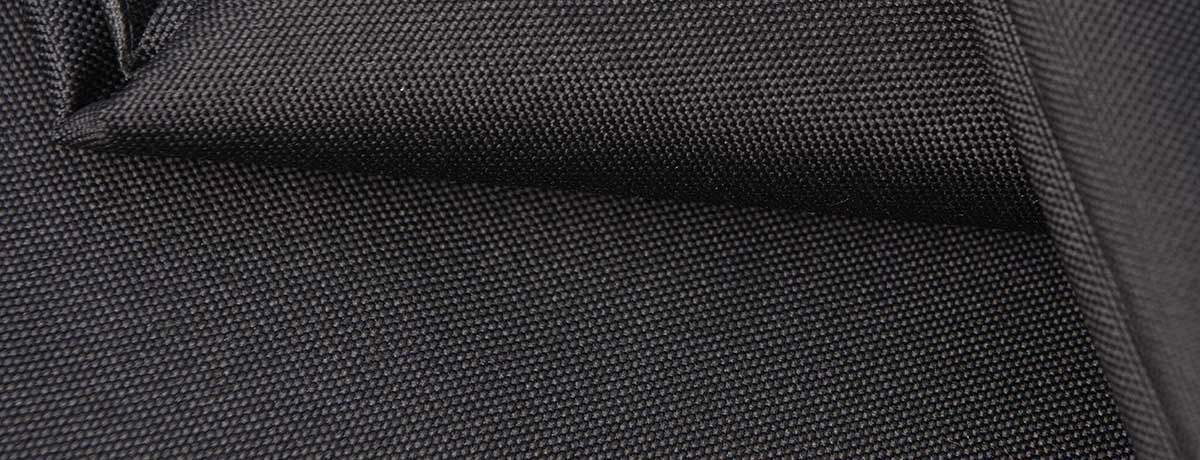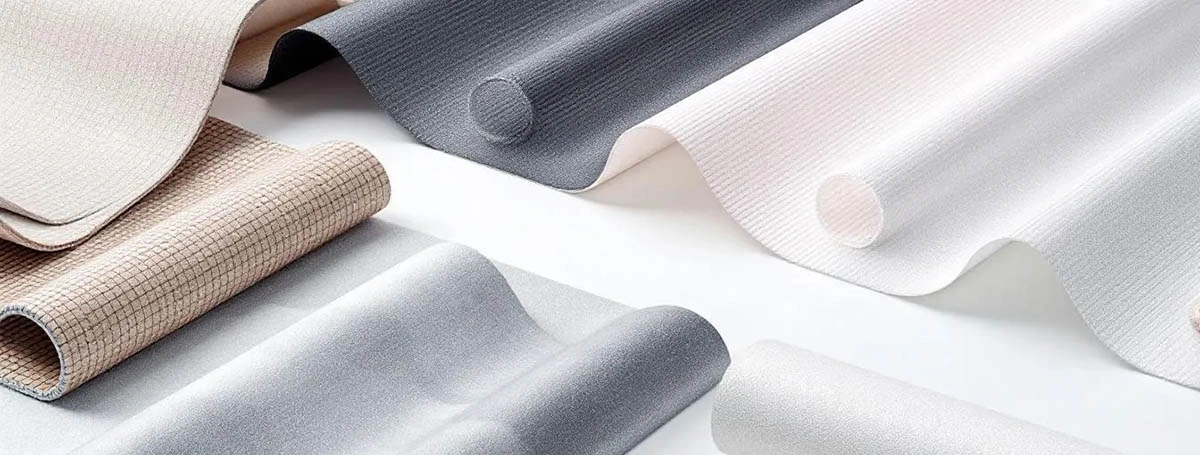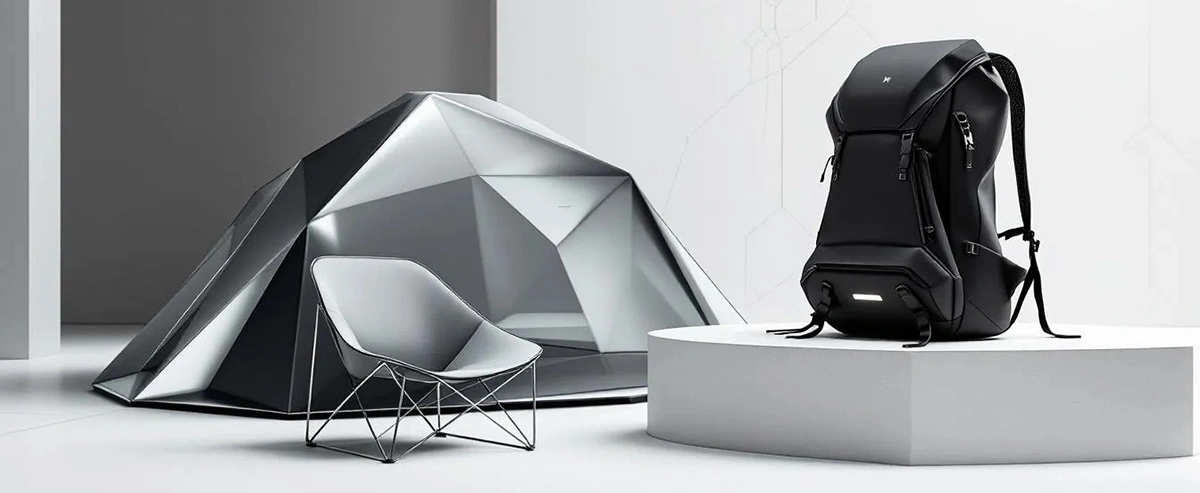How PU Fabric Coating Enhances Durability and Comfort

PU fabric coating involves covering textiles with a polyurethane layer to enhance durability and water resistance. This process transforms simple fabrics into high-performance materials for various uses. In this article, we’ll explore the benefits, methods, and applications of PU-coated fabrics.
Key Takeaways
-
PU fabric coating significantly enhances the water resistance, durability, and flexibility of textiles, making them suitable for various applications, including outdoor gear and industrial use.
-
Recent advancements in polyurethane technology focus on creating more environmentally friendly PU coatings while improving their performance and protection against wear and tear.
-
Ningbo MH stands out as a leading manufacturer of PU-coated fabrics, emphasizing quality control and customization to meet diverse client needs across global markets.
Understanding PU Fabric Coating
PU fabric coating is a revolutionary composite material created by applying polymer resins to a textile backing, significantly enhancing the fabric’s water resistance, durability, and flexibility. This coating process involves manufacturing polyurethane coated fabrics by applying a thin layer of polyurethane coatings to textile surfaces such as polyester, nylon, or cotton, effectively transforming ordinary polyurethane fabric into high-performance materials.
The primary purpose of PU fabric coating is to improve the textile’s resistance to water and wear, making it suitable for a wide range of applications. From outdoor gear to industrial use, the benefits of PU-coated fabrics are manifold, providing a blend of durability, flexibility, and comfort that is hard to match.
Understanding the underlying chemistry, the processes involved, and the types of base fabrics used in PU fabric coatings is key to appreciating their value. This section explores these aspects, providing a solid foundation for grasping how PU coatings work and their impact on fabric performance.
Basic polyurethane chemistry
Polyurethane is a versatile material widely recognized for its applications across various industries. It is formed through a chemical reaction between diisocyanates and polyols, resulting in a strong and durable material. This basic polyurethane chemistry is the cornerstone of PU fabric coatings, providing the essential properties that make these coatings so effective.
Recent advancements in polyurethane technology have led to the development of bio-based precursors, including vegetable oil polyols, and non-isocyanate polyurethanes (NIPUs), which aim to reduce the environmental impact of PU materials. These innovations highlight the ongoing efforts to make PU coatings more environmentally friendly while maintaining their high performance, particularly in the context of polyurethane resin systems.
Wet and dry processes
Applying PU coatings to fabrics can be done through two main methods: wet and dry processes. The wet process, also known as the wet polyurethane process, involves coating the fabric with liquid PU resin and then using a coagulant to form a film, ensuring uniform coverage and effective waterproofing. The dry polyurethane process offers an alternative approach that can also be effective.
The dry process, in contrast, directly coats the fabric without a preliminary coagulate base. This faster dry method is often preferred for applications requiring a thinner, more flexible coating. Each process has its unique advantages, enabling manufacturers to choose the most suitable method for their specific needs.
Types of base fabrics
Base fabric selection is crucial for the performance and durability of PU-coated textiles. Common options include:
-
Polyester
-
Cotton
-
Nylon
-
Oxford
-
Taslan
-
Canvas Each contributes unique properties, influencing the final characteristics of the coated fabric.
For instance, polyester and nylon are favored for their strength and resistance to abrasion, making them ideal for outdoor and industrial applications. Cotton and canvas, on the other hand, provide a softer and more flexible base, often used in apparel and upholstery.
Knowing the types of base fabrics aids in selecting the right material for specific applications, ensuring optimal performance and longevity of the PU-coated fabric.
Key Properties of PU-Coated Fabrics
PU-coated fabrics are renowned for their exceptional properties, making them a popular choice in various industries. The key features that set these fabrics apart include:
-
Waterproof and water-resistant properties
-
Durability
-
Abrasion resistance
-
Breathability
These properties not only enhance the functionality of the fabric but also contribute to its overall comfort and versatility.
Combining polymer resins with a substrate backing creates a composite material that significantly enhances durability and water resistance, making PU-coated fabrics ideal for long-term performance and protection against the elements. This process can include various resin system combinations to optimize the material properties.
Waterproof and water-resistant properties
One of the standout features of PU-coated fabrics is their ability to repel water effectively. The PU coating provides a permanent impermeability, ensuring sustained protection against water. This makes these fabrics ideal for use in wet conditions, such as outdoor gear and industrial applications.
The waterproof rating of PU-coated fabric, ranging from 800 to 5000 mm, indicates varying levels of water resistance suitable for different conditions. This ensures the fabric’s long term waterproofness in repelling water over long periods, maintaining protection even under harsh weather conditions with waterproof fabrics.
Durability and abrasion resistance
PU coatings significantly extend the lifespan of fabrics by enhancing their resistance to wear and tear. This makes PU-coated fabrics ideal for high-performance apparel and outdoor gear, where durability is a critical factor. The abrasion resistance of these fabrics ensures they can withstand the rigors of everyday wear and harsh environmental conditions.
Additionally, PU-coated fabrics are designed to prevent wear and tear degradation, further extending their fabric’s lifespan and adding mechanical strength. This material’s durability makes them ideal for applications requiring long-term performance.
Breathability and comfort
Breathability and comfort are essential properties of PU-coated fabrics, particularly in applications like outdoor clothing and gear. Certain PU coatings utilize a microporous coating technology, allowing the fabric to release moisture while keeping water out. This ensures that the fabric remains comfortable and dry, even during strenuous activities.
The soft, smooth surface of PU-coated fabric enhances comfort, making it ideal for garments and accessories. Moreover, its lightweight and breathable nature makes it more comfortable than PVC-coated fabric, unlike vinyl, significantly improving overall usability.
Customization Options for PU-Coated Fabrics

PU-coated fabrics offer a wide range of customization options, allowing manufacturers to tailor the materials to specific requirements. These options include different coating types and thicknesses, various finishes, and customizable colors and widths. Such flexibility ensures that PU-coated fabrics can meet diverse performance and aesthetic needs.
Customization extends beyond the coating to the visual and functional aspects of the fabric. This section explores the various ways PU-coated fabrics can be tailored to suit different applications and preferences.
Coating types and thickness
Types and thicknesses of PU coatings can be tailored for specific performance characteristics:
-
Single PU coatings offer basic protection with protective properties.
-
Double PU coatings enhance durability and resistance.
-
Milky PU coatings provide a translucent, aesthetically appealing finish.
The effectiveness of PU coatings in repelling water and providing protection varies with thickness and quality. Adjusting these parameters allows manufacturers to produce PU-coated fabrics tailored to specific customer needs.
Finish options
PU-coated fabrics are available in a variety of finishes, offering customization options to suit different preferences. Common finish options include:
-
Matte
-
Glossy
-
Embossed
-
Printed
-
Metallic
These finishes not only enhance the visual appeal of the fabric but also add functional benefits, such as improved UV protection in the case of silver-coated finishes.
Embossed finishes can add texture to PU-coated materials, providing both functional enhancements and aesthetic appeal. These finishing options allow manufacturers to create unique and attractive products that stand out in the market.
Color and width customization
The width of PU-coated fabrics can be tailored during manufacturing to fit specific application needs, improving usability and reducing waste. Customizing the width of the fabric ensures that it meets the exact dimensions required for its intended use, making it more efficient and cost-effective.
Color customization allows manufacturers to produce PU-coated fabrics in various colors to match brand identities or design specifications, enhancing their versatility and appeal for a broad spectrum of applications.
Applications of PU-Coated Fabrics

PU-coated fabrics are incredibly versatile, finding applications in a variety of sectors due to their protective qualities and customization options. From outdoor gear to industrial uses and furniture upholstery, these pu fabrics offer a blend of durability, flexibility, and aesthetic appeal that makes them ideal for numerous applications.
Tailoring PU-coated fabrics in terms of coating type, thickness, finish, color, and width enhances their suitability for various uses. This section explores the diverse applications of PU-coated fabrics, highlighting their benefits and versatility.
Outdoor gear and apparel
PU-coated materials are widely utilized in the production of outdoor gear and camping gear, providing both waterproof and breathable characteristics essential for tents, jackets, and backpacks. These fabrics are favored for their water resistance and lightweight properties, making them ideal for outdoor clothing and equipment.
The comfort and durability of PU-coated fabrics make them suitable for various outdoor applications, ensuring protection against harsh weather conditions while maintaining breathability. This makes them a popular choice in the outdoor industry.
Industrial and commercial uses
PU-coated materials are crucial in manufacturing industrial covers and work uniforms, offering protection from harsh chemicals and conditions. Their durability and resistance to chemicals, oils, and solvents make them ideal for protective film clothing and equipment in industrial settings.
In commercial applications, PU-coated fabrics are used for protective covers of machinery, ensuring resistance to dust, moisture, and extreme weather conditions. This versatility makes them a valuable asset in various industrial and commercial use environments.
Upholstery and furniture
PU-coated fabrics are commonly used in furniture upholstery due to their combination of durability and aesthetic appeal. These fabrics mimic the appearance of real leather while remaining soft and flexible without cracking, making them suitable for both residential and commercial settings.
The versatility and functionality of PU-coated fabrics extend to the medical field, used in applications like waterproof seals and protective garments. This broad range of uses underscores their importance in various sectors.
Ningbo MH Industry Co., Ltd.: Your Partner in PU-Coated Fabrics
Ningbo MH Industry Co., Ltd. is a leading manufacturer and wholesaler of high-quality PU-coated fabrics, offering a wide range of products for various applications. With extensive experience and a commitment to quality, they are a trusted partner for manufacturers worldwide.
This section introduces the company, its quality control measures, and its global reach, highlighting why Ningbo MH Industry Co., Ltd. is the preferred choice for PU-coated fabrics.
Company overview
Ningbo MH Industry Co., Ltd. was established in 1999 and has since grown to become a prominent player in the textile industry, specializing in garment accessories and tailored materials. With over 25 years of experience, the company has a rich history of innovation and specialization in textile coatings, contributing significantly to the fabric industry. Their expertise in textile coating and finishing ensures high-quality products that meet the diverse needs of their clients.
Focusing on garment accessories and fabric solutions has positioned the company as a leading manufacturer and wholesaler of PU-coated fabrics in China. Their commitment to quality and innovation has earned them a significant presence in the textile industry, making them a reliable partner for businesses worldwide, especially when it comes to selecting the right coat for their needs.
Quality control and customization
Quality control is a cornerstone of Ningbo MH Industry Co., Ltd.’s operations. They have implemented a strict quality control system to ensure consistent coating thickness and adhesion, vital for the performance and longevity of PU-coated fabrics. This meticulous attention to detail guarantees their products meet the highest standards of durability and reliability.
In addition to quality control, Ningbo MH Industry Co., Ltd. offers extensive customization options. Clients can specify unique requirements for PU fabric coatings, including custom coatings, finishes, and properties like waterproof, breathable, or flame-retardant. These tailored solutions cater to specific market needs, enhancing the versatility and appeal of their PU-coated fabrics.
Global reach and market presence
Ningbo MH Industry Co., Ltd. has established a robust global presence, exporting PU-coated fabrics to over 150 countries for outdoor, industrial, and garment use. Their extensive network of over 40 branches in 35 countries showcases their ability to serve a diverse range of clients and applications, ensuring their high-quality PU-coated fabrics are available worldwide.
Their strong business relationships with over 150 countries highlight their commitment to providing reliable and cost-effective fabric solutions globally. The ability to deliver bulk wholesale supplies with factory-direct prices further enhances their appeal to businesses seeking high-quality, affordable PU-coated fabrics.
Summary
In conclusion, PU fabric coating significantly enhances the durability and comfort of textiles, making them suitable for a wide range of applications. From outdoor gear and industrial uses to furniture upholstery, PU-coated fabrics offer unparalleled water resistance, durability, and breathability. The ability to customize these fabrics in terms of coating type, thickness, finish, color, and width further adds to their versatility and appeal.
Ningbo MH Industry Co., Ltd. stands out as a leader in the production of high-quality PU-coated fabrics, offering extensive customization options and a commitment to quality control. Their global reach and market presence ensure that their products meet the needs of clients worldwide, making them the go-to partner for PU-coated fabric solutions. Embrace the benefits of PU fabric coating and elevate the performance and comfort of your textiles.
Frequently Asked Questions
What are the main benefits of PU-coated fabrics?
PU-coated fabrics provide significant benefits including enhanced water resistance, durability, and breathability, making them suitable for outdoor gear, industrial applications, and furniture upholstery.
How are PU coatings applied to fabrics?
PU coatings are applied to fabrics through wet or dry processes; the wet process involves using a liquid PU resin with a coagulant to create a film, while the dry process applies the coating directly without a coagulate base.
What types of base fabrics are used with PU coatings?
PU coatings are commonly used on base fabrics such as polyester, cotton, nylon, oxford, taslan, taffeta, and canvas, each offering distinct characteristics to enhance the final product's performance.
Can PU-coated fabrics be customized?
Yes, PU-coated fabrics can be customized regarding coating type, thickness, finish, color, and width to fulfill specific performance and aesthetic requirements.
Why choose Ningbo MH Industry Co., Ltd. for PU-coated fabrics?
Choosing Ningbo MH Industry Co., Ltd. for PU-coated fabrics ensures access to high-quality products backed by extensive customization options and rigorous quality control. Their established global presence positions them as a dependable partner for businesses around the world.


